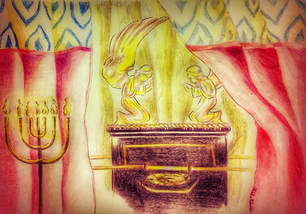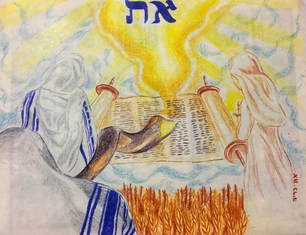BY JONAH DOCTURA | 2017 INTRODUCTION In Colossians 2:16-17, Paul writes that the festivals are "shadows of things to come." As a review, the Appointed Sabbath Days of Adonai Elohim provide an "overview" of history, each reflecting a specific event in the life and work of Messiah. The Spring Festivals of Passover, Unleavened Bread, First Fruits and Pentecost received a Messianic fulfillment within the events of the first coming of Messiah. Because of this, either people missed or many believe that it is not unreasonable to think that the fall festivals speak to Messiah's return. When Solomon built the first Temple, It was on Sukkot that the Spirit of G-d descended upon it. -Bro. Jonah Doctura, Elder-
0 Comments
BY RICHARD SISON | 2017 INTRODUCTION The Day of Atonement is considered as the holiest day in the calendar of the Jewish people. The Scripture calls this as Shabbat Shabbaton, the “Sabbath of the Sabbaths” (Lev 23:26-32). During this time of complete fasting, the Jewish people devote themselves to individual and communal repentance, teshuvah, returning to the right way. In Deut 30:15-16 Moses laid out before the children of Israel the two ways, “See, I have set before you today life and prosperity, and death and adversity; in that I command you today to love the L-RD your G-d, to walk in His ways and to keep His commandments and His statutes and His judgments, that you may live and multiply, and that the L-RD your G-d may bless you in the land where you are entering to possess it.” Because the Yom Kippur marks the end of this special forty-day period of repentance, it is characterized by a sense of urgency and solemnity. The phrase, "Write us in the Book of Life", which is recited throughout Yom Teruah which is recited throughout Rosh Hashanah, is changed to, "Seal us in the Book of Life". The day ends with a long blast of the shofar, sounding a final appeal for G-D`s forgiveness as well as proclaiming the hope of the messianic and redemption. It is better that we judge ourselves now that to be judged with the ungodly in the final BY RICHARD SISON | 2017 INTRODUCTION Apostle Paul in his epistles to the Colossians says, “Let no man therefore judge you in meat, or in drink, or in respect of an holyday, or of the new moon, or of the sabbath days: Which are a shadow of things to come; but the body [is] of Christ.” (Col 2:16-17). This is one of the most misunderstood passage about Paul. The misinterpretation of this passage started with the wrong translation biased on the abrogation of the Torah. However, the Greek word “de” is a primary particle that can be used either as an “adversative” or “continuative.” Adversative is used for contrasting while continuative is to bridge and support what was and what is. Translators err in this matter for choosing adversative word - “but” - to differentiate Christ against the Torah and in the process have to add another word “is” making the passage appear to be in contrary to the Law of G-D. Paul was very clear that the Feasts, New Moon and Sabbaths are typology and shadow or reflection of what is real similar to what was shown by G-D to Moses in the mountain. The Scripture cannot contradict the Scripture. -Bro. Richard Sison, Elder- |
AuthorWrite something about yourself. No need to be fancy, just an overview. Archives
February 2018
Categories |
 RSS Feed
RSS Feed
